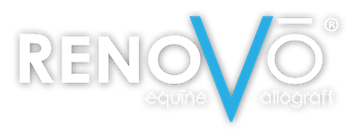Manufacturing
At Equus Innovations, the safe, high-quality products the Veterinary community has come to expect from us, are top of mind every day. We understand the impact of our daily actions on the Quality of our products, and ultimately the benefit to a patient in need. For this reason, Quality is at the core of everything we do.
RenoVō® is processed following current Good Tissue Practices (cGTP). Fundamental to cGTP, is a comprehensive system for manufacturing and tracking tissue and tissue-based products. The system, or Quality Program establishes written procedures and quality standards for all core cGTP requirements including but not limited to recovery, donor screening, donor testing, processing, storage, labeling, packaging, and distribution. Equus Innovations has established an independent Quality Unit to implement and maintain the Quality Program.
Consistent with human tissue regulation, the Equus Innovations Quality Program is designed to prevent, detect, and correct deficiencies that may lead to circumstances that increase the risk of introduction, transmission, or spread of communicable disease. This begins with a Donor-eligibility Determination based on donor screening and testing for relevant communicable disease agents and diseases. Equus Innovations has established a rigorous screening process that includes informed consent of the donor sponsor, review of the donor mare’s medical history for risk factors, physical assessment for clinical evidence of infection, and serological testing for relevant communicable diseases, performed prior to the donation. The final Donor-eligibility determination is made by Equus Innovations’ Veterinary Director based on pre-defined Specifications.
All infectious disease testing is conducted by an approved laboratory certified by the United States Department of Agriculture (USDA), Animal and Plant Health Inspection Service (APHIS) USDA/APHIS as a Level 1 Laboratory in the National Animal Health Laboratory Network (NAHLN) and accredited to ISO/IEC 17025:2017 by the American Association for Laboratory Accreditation (A2LA); or meets equivalent requirements. Approved or cleared donor screening test kits are used where available, and found to be negative or non-reactive for specified testing as a condition of Donor-eligibility.
Donor tissues are recovered by Licensed Veterinarians during live birth using safe recovery techniques and sterile equipment in a controlled environment. Defined protocol for storage and handling of the tissue, designed to preserve tissue integrity and prevent potential cross-contamination is strictly adhered to. All donor tissues are assigned a unique identifier that is maintained throughout all stages of manufacturing and distribution that provides traceability from the donor to the recipient, and the recipient to the donor.
Processing of eligible donor tissues is performed aseptically, by highly experience technical staff, using patented technologies in a validated process to produce the highest quality allografts. Tissues are subjected to rigorous pre-process, in-process, and final product quality testing and inspection to assure process control and integrity of the final product. Allografts verified by Quality Control to meet established specifications receive approval for final packaging. Only those finished products verified to meet all established specifications and quality standards following packaging receive final Quality approval for distribution.
